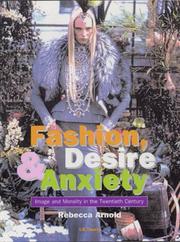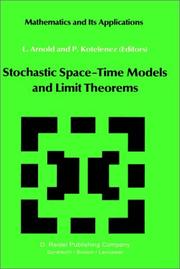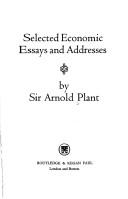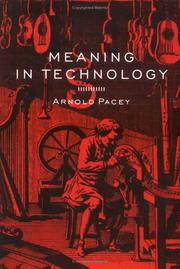| Listing 1 - 10 of 1196 | << page >> |
Sort by
|
Book
Abstract | Keywords | Export | Availability | Bookmark
 Loading...
Loading...Choose an application
- Reference Manager
- EndNote
- RefWorks (Direct export to RefWorks)
Book
ISBN: 0224619314 9780224619318 Year: 1970 Publisher: London: Cape,
Abstract | Keywords | Export | Availability | Bookmark
 Loading...
Loading...Choose an application
- Reference Manager
- EndNote
- RefWorks (Direct export to RefWorks)
English literature --- 82-2=20 --- Toneel. Drama--Engels --- 82-2=20 Toneel. Drama--Engels --- Theatrical science
Book
ISBN: 3423043245 Year: 1979 Publisher: München DTV
Abstract | Keywords | Export | Availability | Bookmark
 Loading...
Loading...Choose an application
- Reference Manager
- EndNote
- RefWorks (Direct export to RefWorks)
Book
ISBN: 0249441241 9780249441246 Year: 1974 Publisher: Aylesbury: International Textbook Company Limited,
Abstract | Keywords | Export | Availability | Bookmark
 Loading...
Loading...Choose an application
- Reference Manager
- EndNote
- RefWorks (Direct export to RefWorks)
architecture [discipline] --- Architecture --- anno 1900-1999 --- -#TCON:CCHTB --- 72.036 --- Europa --- architectuur --- twintigste eeuw --- neostijlen --- ecclecticisme --- art nouveau --- ruimtelijke ordening --- Bauhaus --- monumentalisme --- wederopbouw --- Architecture, Western (Western countries) --- Building design --- Buildings --- Construction --- Western architecture (Western countries) --- Art --- Building --- 20ste eeuw (architectuur) --- Twintigste eeuw (architectuur) --- Design and construction --- History --- #TCON:CCHTB

ISBN: 1860645550 Year: 2001 Publisher: London Tauris
Abstract | Keywords | Export | Availability | Bookmark
 Loading...
Loading...Choose an application
- Reference Manager
- EndNote
- RefWorks (Direct export to RefWorks)
Sociology of culture --- Civilisation --- fashion [concept] --- Architecture --- anno 1900-1999 --- Fashion --- -Fashion --- -#SBIB:021.AANKOOP --- #SBIB:309H53 --- #SBIB:316.7C121 --- Style in dress --- Clothing and dress --- Social aspects --- History --- -Niet-verbale communicatie --- Cultuursociologie: gedragspatronen, levensstijl --- Manufacturing technologies --- mode --- Applied arts. Arts and crafts --- fashion [culture-related concept] --- lichaam (van de mens) --- cultuursociologie --- -Social aspects --- -Civilisation

ISBN: 902772038X 9401088799 9400953909 Year: 1985 Publisher: Dordrecht
Abstract | Keywords | Export | Availability | Bookmark
 Loading...
Loading...Choose an application
- Reference Manager
- EndNote
- RefWorks (Direct export to RefWorks)

ISBN: 0710079354 Year: 1974 Publisher: London Routledge and Kegan
Abstract | Keywords | Export | Availability | Bookmark
 Loading...
Loading...Choose an application
- Reference Manager
- EndNote
- RefWorks (Direct export to RefWorks)
Methodology of economics --- AA / International- internationaal --- 330.1 --- Economics --- 347.78 --- 330.00 --- 347.770 --- Economic theory --- Political economy --- Social sciences --- Economic man --- Economische grondbegrippen. Algemene begrippen in de economie --- Auteursrecht. --- Economische en sociale theorieën: algemeenheden. --- Industriële, commerciële en wetenschappelijke eigendom: algemeenheden. --- 330.1 Economische grondbegrippen. Algemene begrippen in de economie --- Economische en sociale theorieën: algemeenheden --- Industriële, commerciële en wetenschappelijke eigendom: algemeenheden --- Auteursrecht
Book
ISBN: 9035121848 Year: 2001 Publisher: Amsterdam : Bakker,
Abstract | Keywords | Export | Availability | Bookmark
 Loading...
Loading...Choose an application
- Reference Manager
- EndNote
- RefWorks (Direct export to RefWorks)
History of civilization --- anno 1800-1999 --- Western Europe --- Middle class --- Social classes --- Cultural Studies. --- Literary History. --- Social life and customs --- History. --- #GGSB: Geschiedenis (Europa) --- Bourgeoisie --- Commons (Social order) --- Middle classes --- Social life and customs&delete& --- History --- Social conditions --- Europe --- Civilization. --- Geschiedenis (Europa)

ISBN: 0262161826 0262281147 058509957X 9780262281140 9780585099576 9780262161824 0262661209 9780262661201 Year: 1999 Publisher: Cambridge, Mass. : MIT Press,
Abstract | Keywords | Export | Availability | Bookmark
 Loading...
Loading...Choose an application
- Reference Manager
- EndNote
- RefWorks (Direct export to RefWorks)
"In Meaning in Technology, Arnold Pacey explores how an individual's sense of purpose and meaning in life can affect the shape and use of technology. He argues against reductionism in interpreting technology in a human context, and for acknowledgment of the role of the human experience of purpose when it helps to express meaning in technology. In the first part of the book, Pacey analyzes the direct experience of technology by individuals--engineers, mathematicians, craft workers, and consumers. In the second part, he examines the contexts in which technology is used, relating technology to nature and society. He explores our sense of place and of our relationship with nature, environmental concerns, gender, and creativity. He concludes with a discussion of the possibilities of a more people-centered technology"--Provider website. Annotation In previous books Arnold Pacey has written about the role of ideas and ideals in the creation of technology, about the global history of technology, and about how the complex interaction of political, cultural, economic, and scientific influences determines the course of technological practice. In Meaning in Technology, he explores how an individual's sense of purpose and meaning in life can affect the shape and use of technology. Stressing that there is no hierarchy of meaning in technology, he argues against reductionism in interpreting technology in a human context, and for acknowledgment of the role of the human experience of purpose when it helps to express meaning in technology. In the first part of the book, Pacey analyzes the direct experience of technology by individuals - engineers, mathematicians, craft workers, and consumers. He looks at music as a source of technology, at visual thinking, at tactile knowledge, and at the generation of social meaning. In the second part, he examines the contexts in which technology is used, relating technology to nature and society. He explores our sense of place and of our relationship with nature, environmental concerns, gender, and creativity. He concludes with a discussion of the possibilities of a more people-centered technology - a participatory, ethical experience of technology that values people as well as their environment.
Economic production --- Sociology of work --- TECHNOLOGY & ENGINEERING --- Social Aspects --- Technology - General --- Engineering & Applied Sciences --- Technology --- Philosophy. --- Social aspects. --- Technology and civilization --- Philosophy --- Social aspects --- SCIENCE, TECHNOLOGY & SOCIETY/General --- SCIENCE, TECHNOLOGY & SOCIETY/History of Science
Book
ISBN: 9026503423 Year: 1980 Publisher: Lisse Swets en Zeitlinger
Abstract | Keywords | Export | Availability | Bookmark
 Loading...
Loading...Choose an application
- Reference Manager
- EndNote
- RefWorks (Direct export to RefWorks)
| Listing 1 - 10 of 1196 | << page >> |
Sort by
|

 Search
Search Feedback
Feedback About UniCat
About UniCat  Help
Help News
News